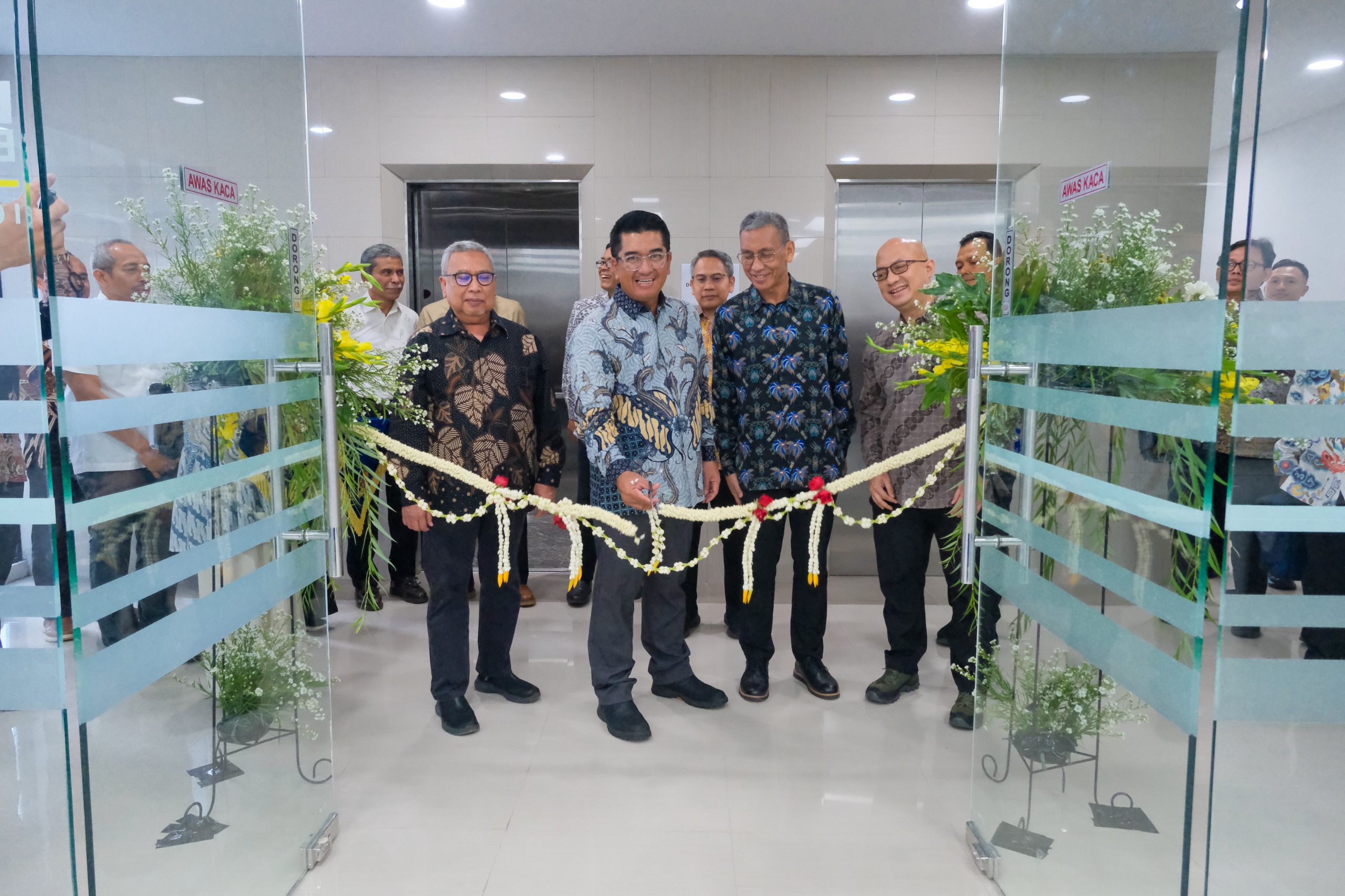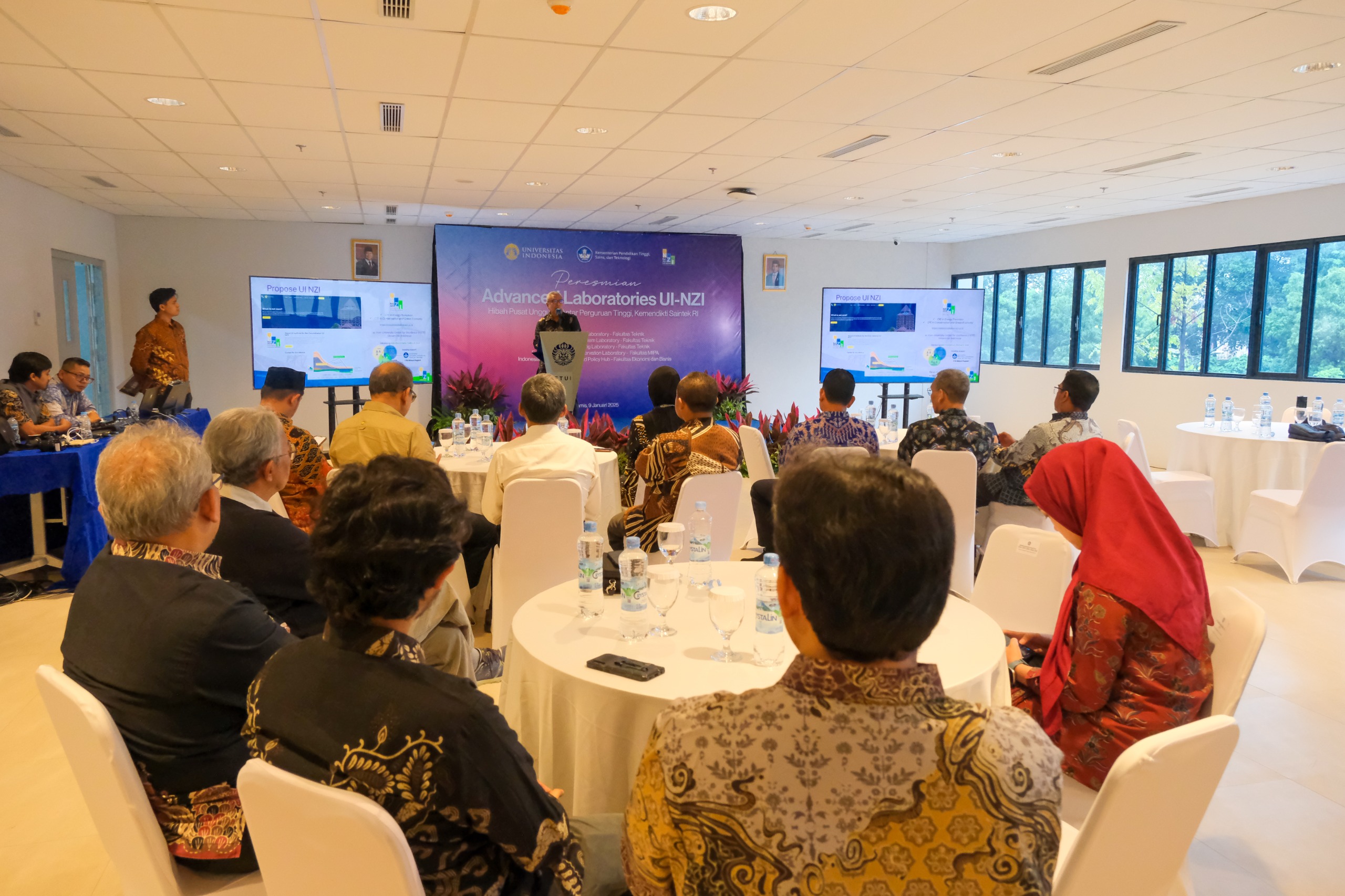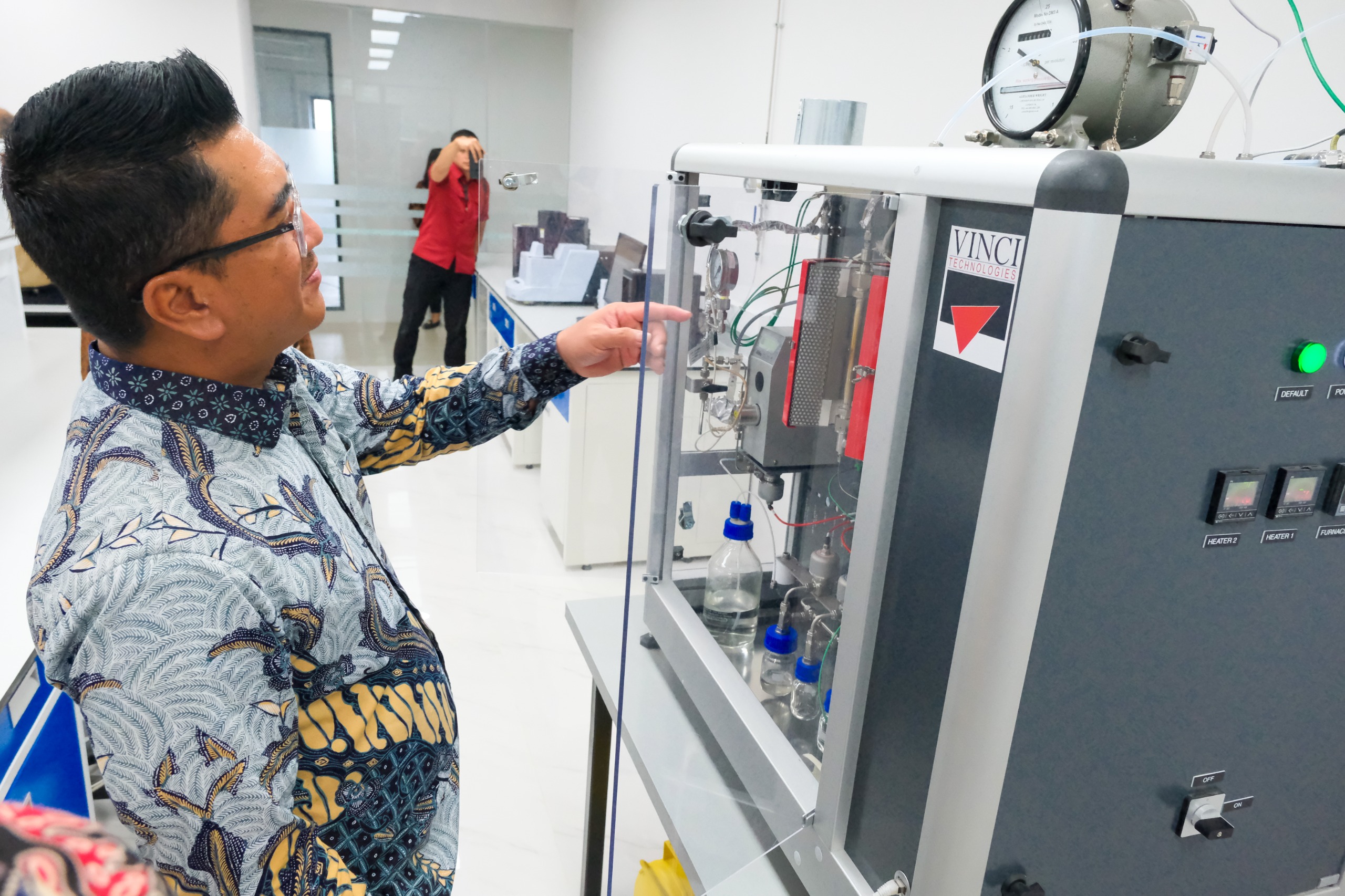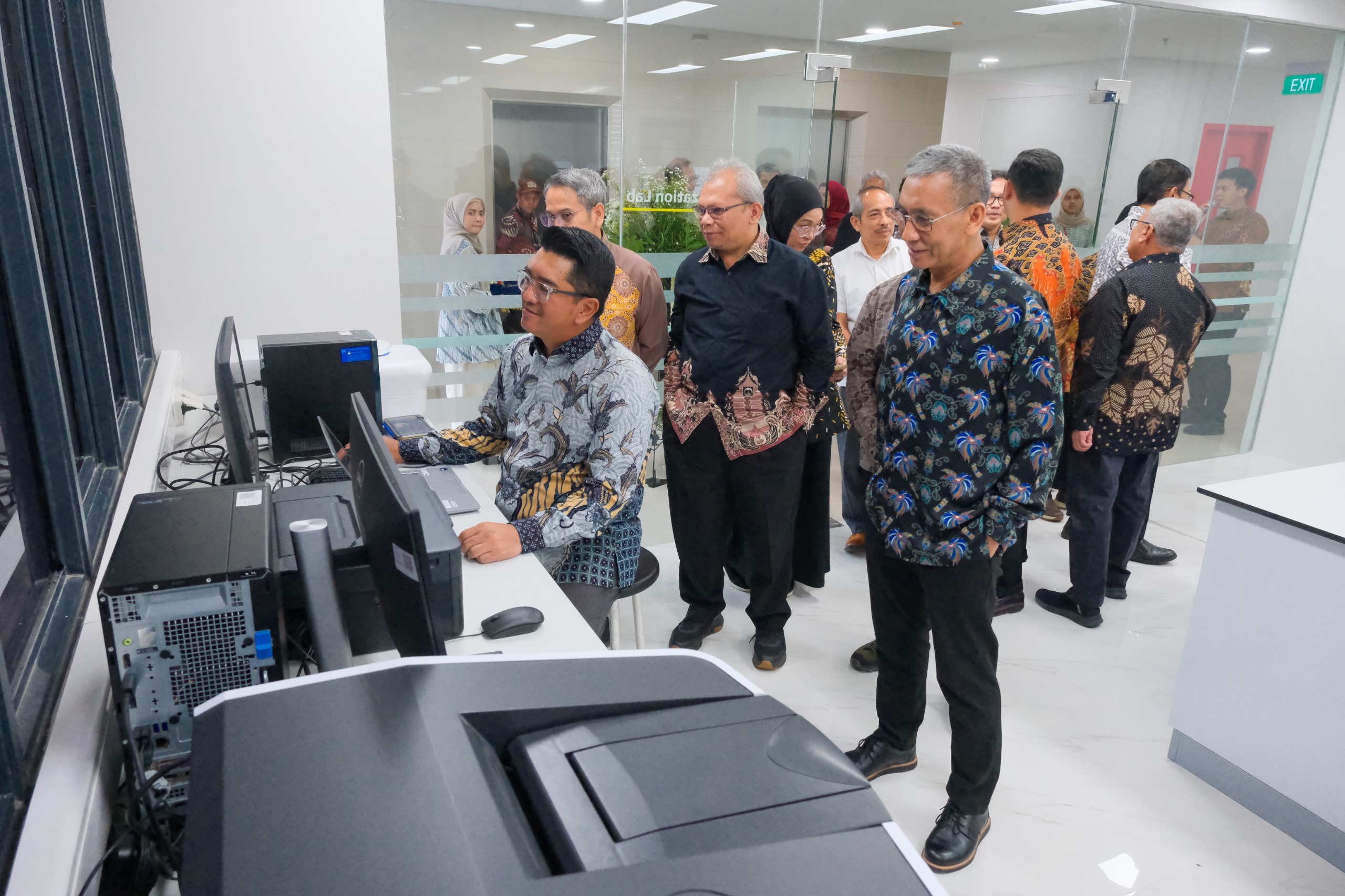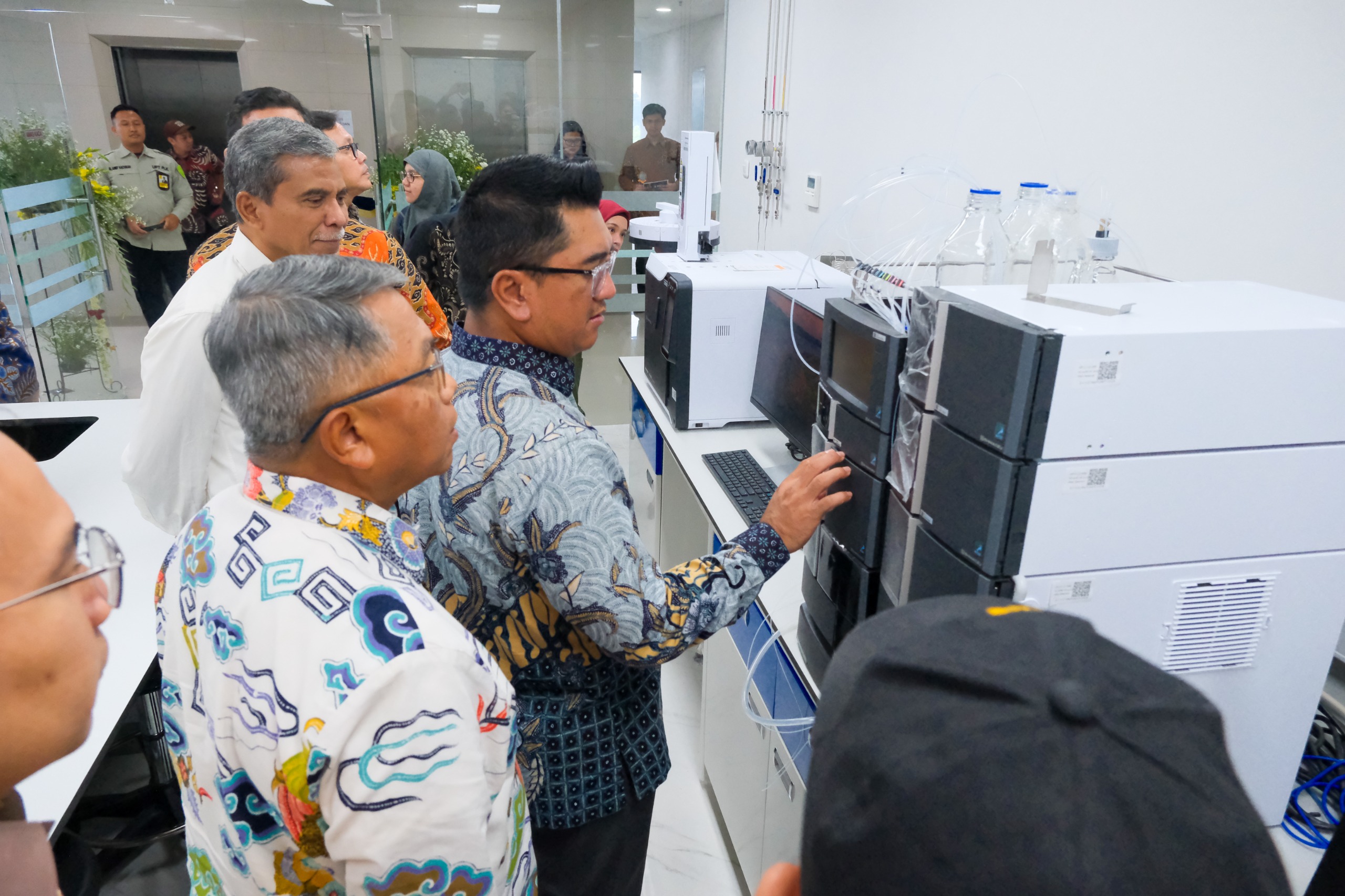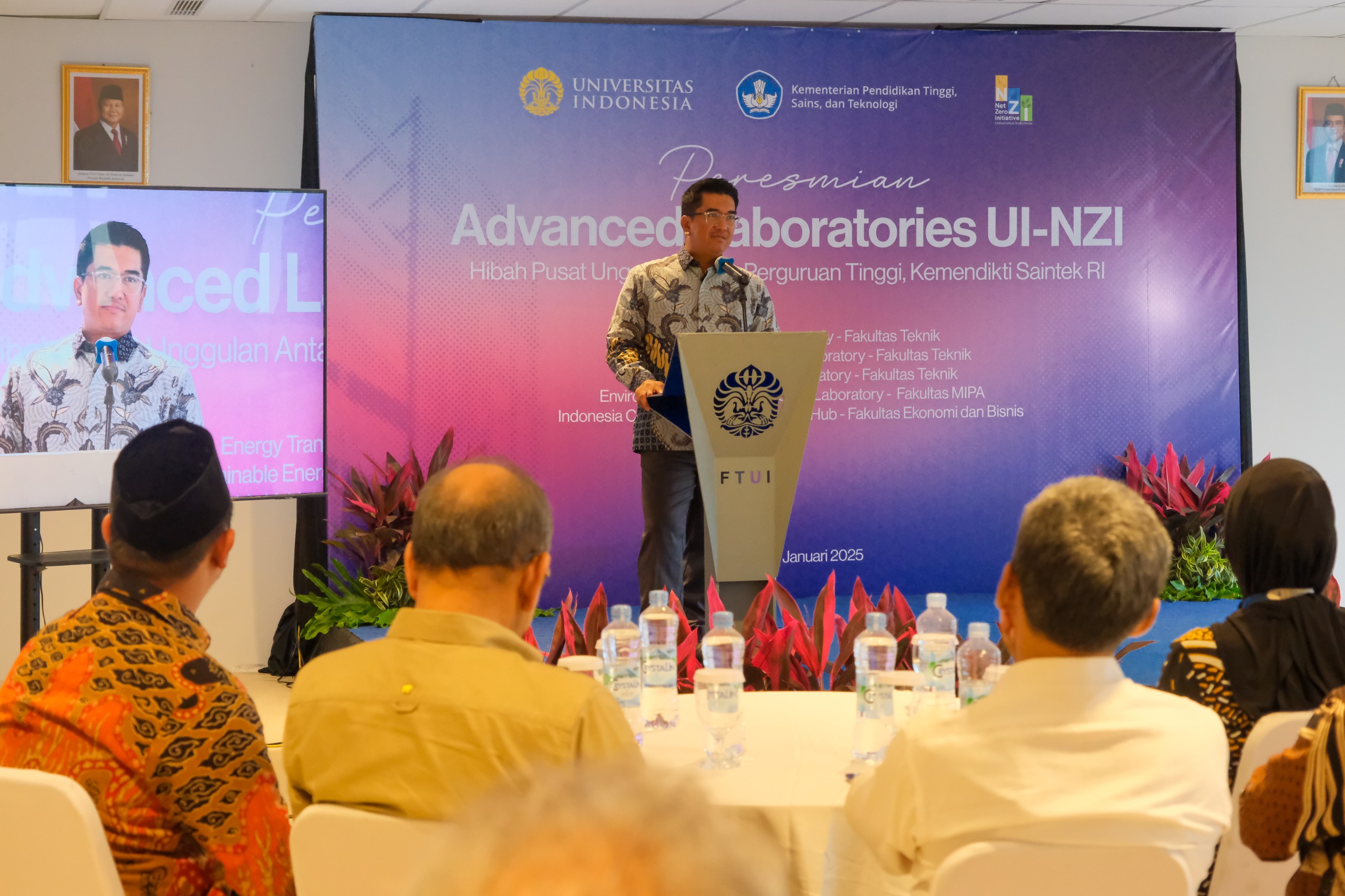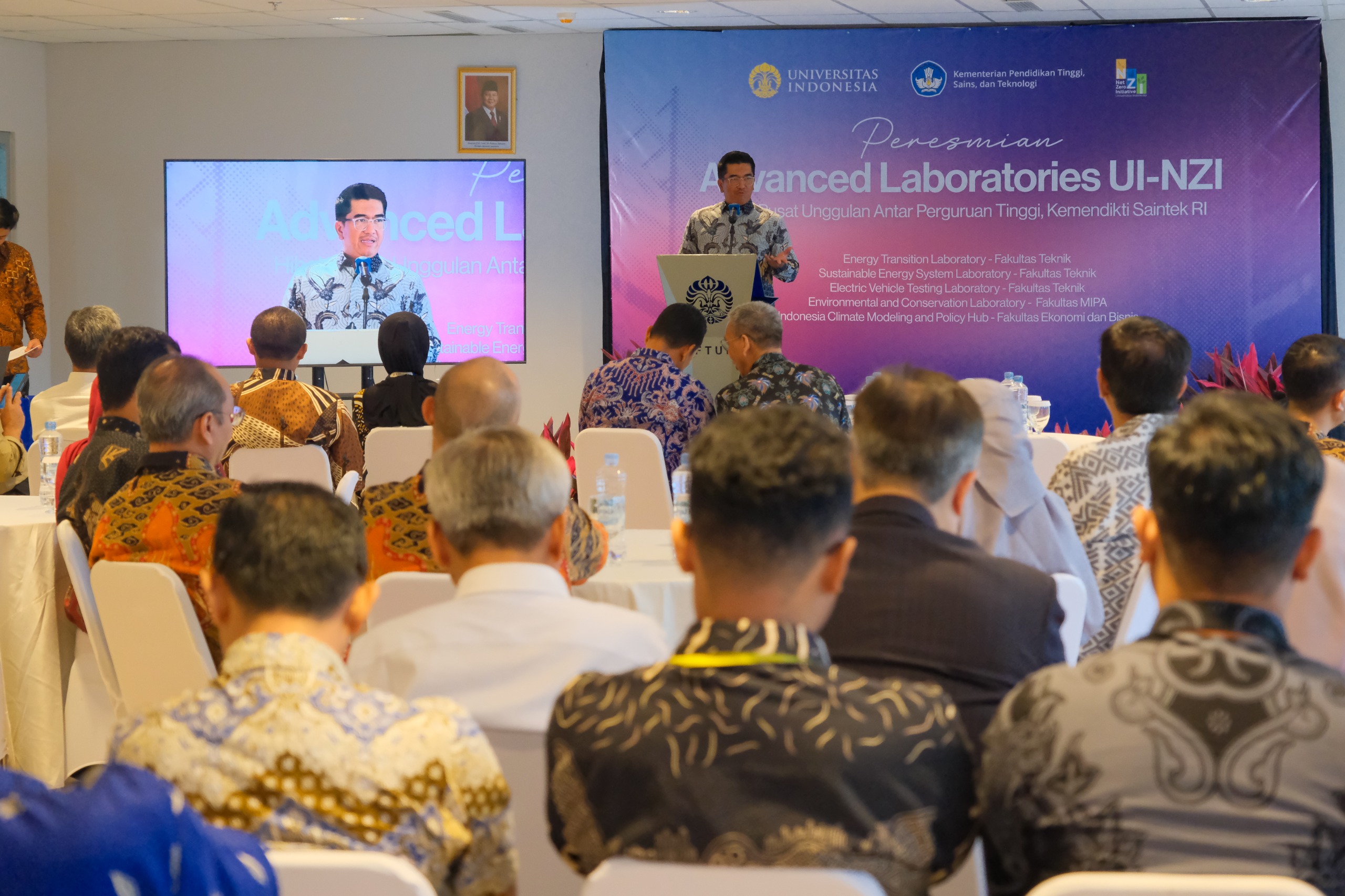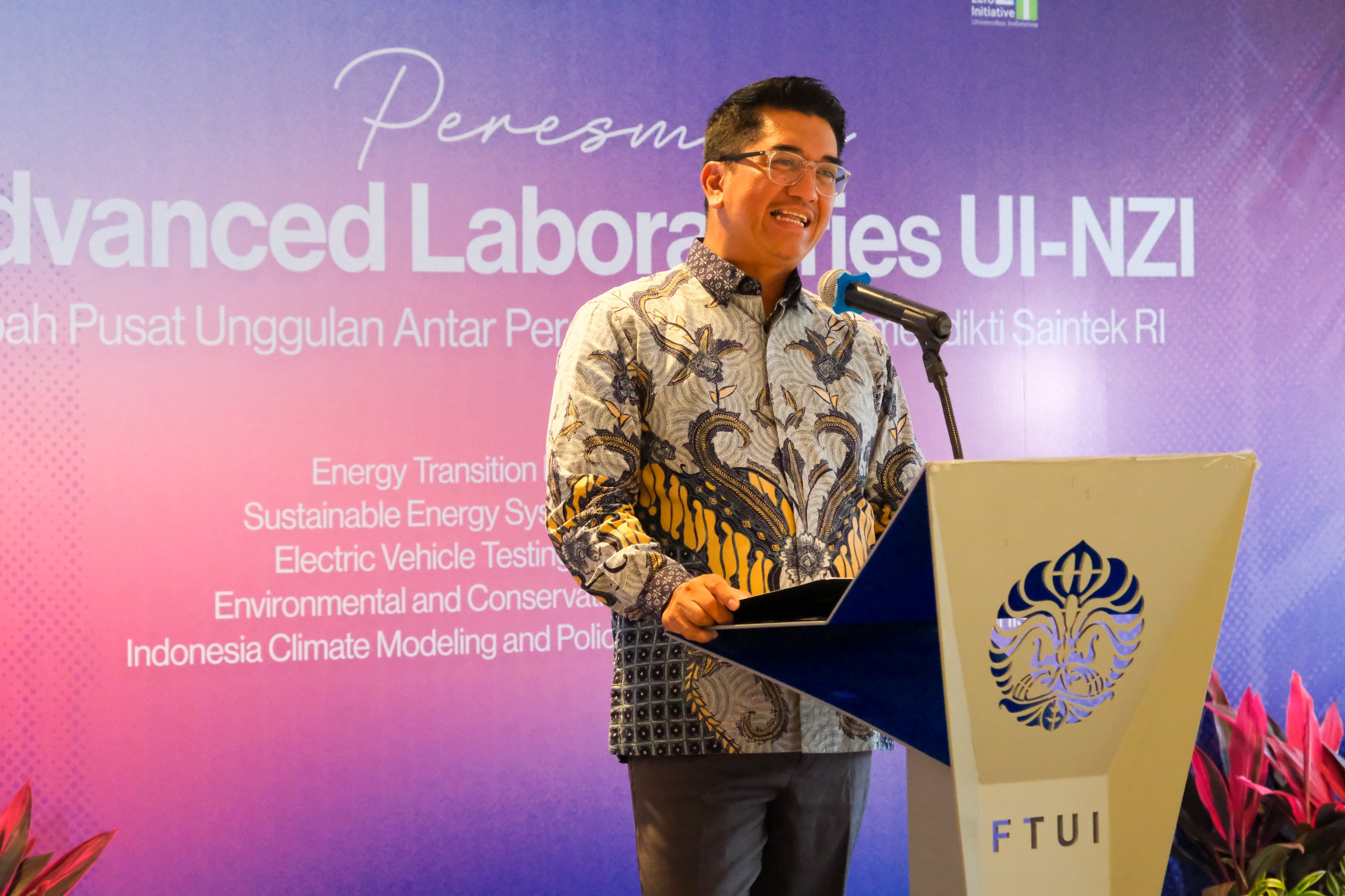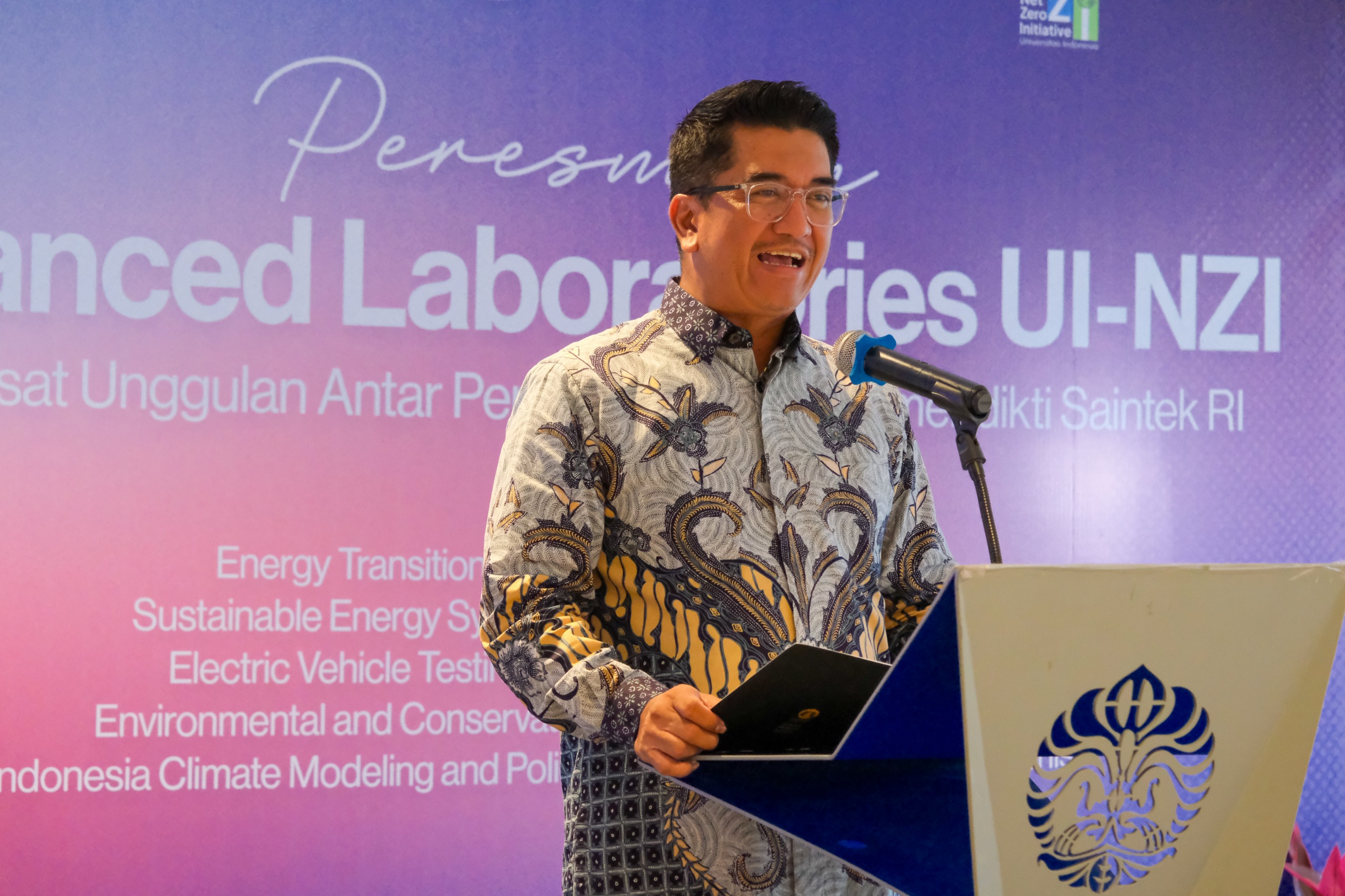Universitas Indonesia Inaugurates Five Advanced UI-NZI Laboratories
Universitas Indonesia (UI) officially inaugurated five Advanced UI-NZI Laboratories located in three faculties within the university. The inauguration ceremony, held at the Interdisciplinary Engineering (IDE) Building of the Faculty of Engineering UI (FTUI), was marked by a ribbon-cutting by the Rector of UI, Prof. Dr. Ir. Heri Hermansyah, S.T., M.Eng., IPU, along with other senior university leaders.
The five laboratories include the Energy Transition Laboratory (ETL), the Sustainable Energy System Laboratory (SESL), and the Electric Vehicle Testing Laboratory, all housed within the Faculty of Engineering; the Environmental and Conservation Laboratory (ECL) in the Faculty of Mathematics and Natural Sciences; and the Indonesia Climate Modeling and Policy Hub (I-CLIMB) in the Faculty of Economics and Business.
Establishing these laboratories is part of the Universitas Indonesia-Net Zero Initiative (UI-NZI) program, supported by the Ministry of Higher Education, Science, and Technology through a Cross-University Center of Excellence Grant (PUAPT) amounting to IDR 178 billion. PUAPT is a funding program for five State Legal Entity Universities (PTN-BH) listed among the top 500 world-class universities, including UI.
In his report, the Chairman of UI-NZI, Prof. Dr. Ir. Widodo Wahyu Purwanto, DEA, stated, “One of the primary functions of PUAPT is institutional development, which at UI is embodied through UI-NZI. There is also engagement with several domestic and international universities, training for skill improvement, and, most significantly, equipment procurement. Currently, 100 percent of the equipment has been installed.”
Prof. Widodo also emphasized that UI-NZI’s goal is to become an interdisciplinary research centre in three main areas: energy transition, conservation, and the green economy. In response to climate change issues, this goal is a priority.
In his speech, the Rector of Universitas Indonesia, Prof. Heri Hermansyah, explained that these five advanced laboratories will produce two main outputs: research findings and interdisciplinary public services. Prof. Heri also highlighted that the presence of these advanced laboratories reinforces UI’s commitment to supporting cutting-edge, multidisciplinary research that addresses climate change challenges and achieves net zero emissions.
“From the proposal, process, to output, we can see that all targets have been achieved. What we expect now is the output and the impact of all the installed equipment. These should be followed by innovative research activities utilizing these facilities, leading to scientific publications, intellectual property rights, technology, and prototype products that can support industrialization and the national economy,” Prof. Heri said.
The five advanced laboratories, located across several faculties at UI, each have specific functions:
- Energy Transition Laboratory (ETL), located on the 6th floor of the IDE Building at FTUI, consists of six sub-laboratories. The Synthesis and Characterization Laboratory focuses on creating and characterising energy conversion and storage materials. The Carbon Capture & Utilization Laboratory researches capturing and utilizing CO2 as a raw material for chemical and material synthesis to achieve a circular economy. Other sub-laboratories include the Photovoltaics Laboratory, the Green Hydrogen and Fuel Cell Laboratory, the Battery Laboratory, and the Electrophotochemistry Laboratory, all of which are research centres for solar energy and electricity utilization for green energy synthesis.
- Sustainable Energy System Laboratory (SESL), located on the 5th floor of the IDE Building at FTUI, consists of two sections: the Energy Modeling Sub-Laboratory and the Data Center and High-Performance Computer (HPC) Sub-Laboratory. This laboratory focuses on modelling and designing sustainable energy systems and their economic, environmental, social, and policy aspects to support the achievement of net zero emissions by 2060.The
- Electric Vehicle Testing Laboratory (EV Testing Lab), housed in the ICELL Building at FTUI, tests electric vehicles’ performance, safety, and efficiency and their components, including batteries, electric motors, and charging systems. The lab tests battery endurance, energy efficiency, charging compatibility, mileage, and safety under extreme conditions to ensure compliance with international regulatory standards.
- Environmental and Conservation Laboratory (ECL), located at the Multidisciplinary Research Laboratory Building at FMIPA UI, focuses on research, monitoring, and managing ecological conservation and natural resources. Its primary function is to develop solutions to protect ecosystems, restore degraded habitats, and support environmental sustainability. Activities in this laboratory include water, air, and soil quality analysis, biodiversity studies, the development of eco-friendly technologies, and conservation planning based on scientific data.
- Indonesia Climate Modeling & Policy Hub (I-CLIMB) is a collaborative centre that brings together climate modellers, researchers, and policy advocates from various institutions to share and develop knowledge on climate modelling and its policy implications. The primary objectives of I-CLIMB include enhancing collaboration, integrity, empowerment, transparency, refinement, and engagement within the climate modelling and policy community. Its activities involve network development, modelling, knowledge-sharing platforms, and capacity-building programs to support better climate policymaking in Indonesia. The I-CLIMB Secretariat is managed by the Institute for Economic and Social Research (LPEM) at the Faculty of Economics and Business, Universitas Indonesia.
***
Office of Public Communication
Faculty of Engineering Universitas Indonesia

